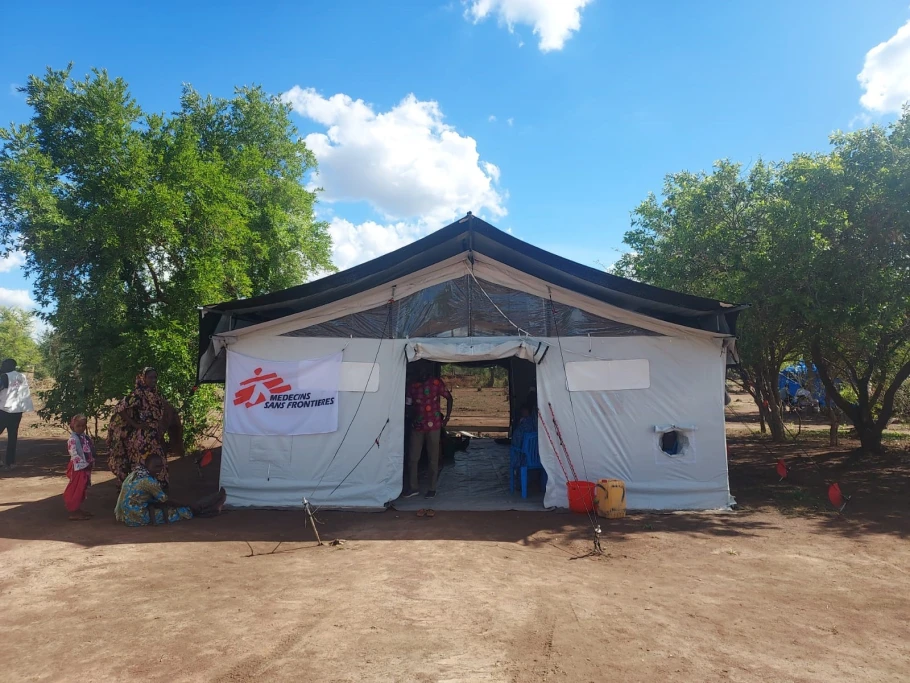
Médecins Sans Frontières (MSF) say the poor shelter, water and sanitation situation is putting the returnees and refugees at risk of disease outbreaks.
On Friday June 16, 2023, Médecins Sans Frontières (MSF) launched Mobile Clinics to Provide Healthcare Services to Returnees and Refugees from Sudan in Renk and Aweil Juba.
The mobile clinics is to provide primary healthcare services to the returnees from Sudan at Zero and Riverside transit sites in Renk town, Upper Nile state.
In a press release statement seen by The Radio Community, the international medical organization is also treating up to 90,000 liters of river water every day to ensure the supply of safe drinking water to the displaced population as part of its emergency response,
“Thousands of people are stranded in the main transit centre or at various locations in Renk town with very limited necessities such as shelter, water, sanitation, and food. An overstretched healthcare system and limited humanitarian response cannot absorb additional needs. A larger coordinated effort by the humanitarian actors is critical to address the needs of those arriving from Sudan,” said Jocelyn YAPI, MSF Head of Mission in South Sudan.
“Our teams are conducting around 110 medical consultations daily, treating patients suffering from acute watery diarrhea, respiratory tract Infections, eye infections, malaria, and other diseases. The poor shelter, water and sanitation situation has also put these people at risk of disease outbreaks.”
In Northern Bahr El Ghazal state, MSF has also set up a mobile clinic close to the Wedwill refugee camp to offer healthcare services to the refugees and returnees from Sudan.
A conflict in Sudan erupted in April 2023 and has killed hundreds of people, driven more than 200,000 to flee across the borders. More and more people continue to leave, taking dangerous and long journeys to the neighboring countries including South Sudan as the humanitarian situation worsens.
According to the United Nations, over 110,000 people so far have fled the conflict in Sudan and sought refuge in South Sudan. Renk town in Upper Nile state has received around 75 per cent of these returnees and refugees.
Most of the people are South Sudanese and arriving at the border exhausted and very vulnerable. Only a few of those who remain in Renk can pay the transport fees to continue their journey from Renk to other parts of the country. Many are uncertain about their future, waiting for help to survive and for the transfer to the places of their origin.
MSF was earlier running a mobile clinic at John Garang statue site; however, with the movement of returnees to the storage halls close to the river, the team moved the location of its services to be closer to the population. MSF’s mobile clinics in the two sites offer services including medical consultations, basic laboratory service, health promotion and mental health support.
MSF teams are also referring the patients needing further specialized care to the other facilities in the area.